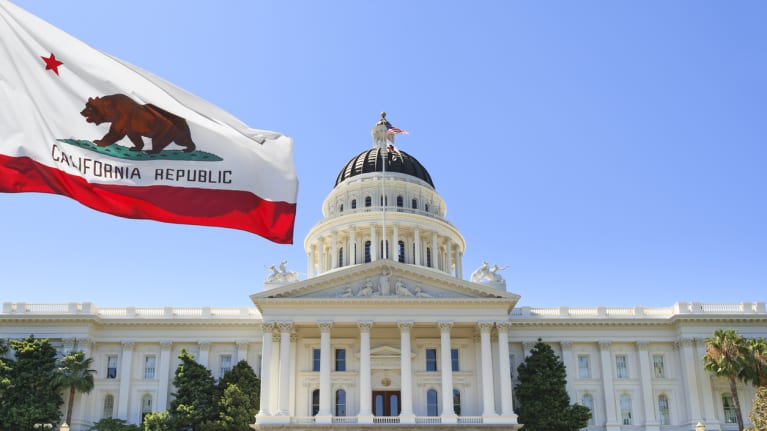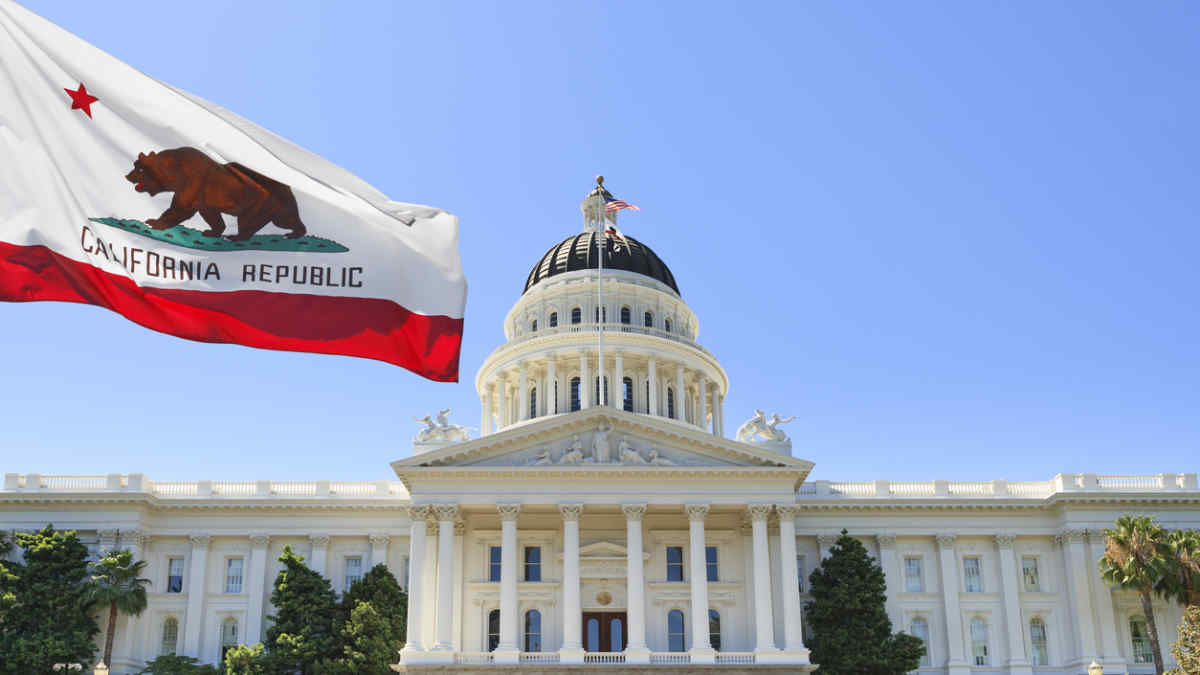

?Eight months of legislative wrangling and dealmaking have come to an end, as the California Legislature just wrapped up work for the year. Now employers across the Golden State turn their eyes to the governor’s office to see which workplace law proposals will become law.
Gov. Gavin Newsom has until Sept. 30 to sign or veto the bills that reached his desk. For the first time since the COVID-19 pandemic, this year has been a return to normal year for lawmakers, which means a return to aggressive legislation establishing and expanding workplace protections for employees.
What are the top 10 bills you should be keeping an eye on over the next month?
Fast Food Sector Council
One of the more controversial proposals of 2022 has been a labor-sponsored effort to enact “sectoral” legislation for an entire industry. AB 257 is purportedly aimed at the fast food industry (restaurants part of a chain of 100 or more establishments), although the bill’s broad definition may include many fast-casual restaurants and other business beyond what most people would consider fast food.
AB 257 would establish a 10-member Fast Food Sector Council, which would have unprecedented and virtually carte-blanche authority to establish industry-wide standards on wages, working hours, and other working conditions. The council’s proposals would come before the legislature and take effect unless the legislature specifically steps in to prevent it from taking effect.
For several years, the hot buzzword among labor advocates and progressive think tanks has been this concept of “sectoral” bargaining/legislation. If this concept gets a toehold in California, expect to see future legislation attempting to replicate this idea in other states or other industries.
Card Check for Agricultural Employees
There have been numerous previous attempts to allow agricultural employees to organize, utilizing a card check process. However, prior proposals have been vetoed by Governors Newsom, Brown, and Schwarzenegger.
Normally, employees seeking to unionize must submit authorization cards signed by a specified percentage of employees, followed by a secret-ballot election in which a majority of employees must vote for the union. By contrast, card check allows a union that submits authorization cards signed by a majority of employees to automatically be certified as the collective bargaining representative without having a secret-ballot election.
Assembly Bill 2183 attempts to establish a card check process for agricultural employees under the Agricultural Labor Relations Act. While the bill was amended to take a slightly different approach, at the end of the day, it is still a card check proposal.
Under AB 2183, each January an agricultural employer would have to decide whether to agree to a labor peace compact. This would prohibit the employer from making statements against the union or conducting captive audience meetings with employees.
If the employer agrees to a labor peace compact, employees would vote via mail-in ballots, rather than a secret ballot election. However, if the employer does not agree to sign a labor peace compact, then employees could select a union via card check without an election.
While Newsom vetoed card check legislation last year and received significant blowback from labor, it remains to be seen how he will act on AB 2183. There are some indications that he may not support the bill in its final format.
COVID-19 Supplemental Paid Sick Leave
During the COVID-19 pandemic, employers saw California adopt a series of statewide requirements for employers to provide Supplemental Paid Sick Leave (SPSL) to employees who test positive or are otherwise impacted by COVID-19.
The current iteration of the SPSL requirement was set to expire on Sept. 30. However, a last-minute proposal (AB 152) would extend that requirement until the end of this year. Importantly, that legislation will not entitle employees to a new bank of SPSL. Rather, it will merely extend the existing entitlement until the end of the year.
AB 152 makes a few small changes to the SPSL law and establishes a new program for small businesses to provide up to $50,000 in grants to cover some of the costs of SPSL provided in 2022. Because the SPSL expires at the end of September, this bill is a “budget trailer” bill, making it effective as soon as signed by the governor.
Employment Discrimination and Cannabis
AB 2188 prohibits adverse action based on an employee’s use of cannabis off the job and away from the workplace, or based on a drug-screening test that found the employee to have non-psychoactive cannabis metabolites in the hair, blood, urine, or other bodily fluids. While this would restrict an employer’s ability to act based merely on metabolite testing, adverse action based on THC-positive testing would still be permitted.
While the bill does not permit an employee to possess or be impaired by cannabis on the job, this will be a challenge for employers. There is no general, widespread and easy test for determining cannabis impairment.
AB 2188 does not apply to employees in the building and construction trades, preempt requirements for federal contracts, or interfere with specified employer rights to maintain a drug-free and alcohol-free workplace. If signed, this bill would go into effect Jan. 1, 2024.
Expansion of Pay Data Reporting
California continues to push the envelope when it comes to efforts to address pay inequities. Several years ago, the state enacted legislation to require certain employers with 100 or more employees to file pay data reports. This year, follow-up legislation (SB 1162) proposes to expand that existing law in a number of ways.
First, the bill would require all private employers with 100 or more employees to file pay data reports, regardless of whether they are required to file a federal EEO-1 with the EEOC. Second, the date for submitting the report would change from March of each year to the second Wednesday of May. Third, SB 1162 would expand the required pay data reports to include median and mean hourly rates within each job category by race, ethnicity and sex. Fourth, the bill would require employers that have 100 or more employees hired through labor contractors to file a separate pay data report covering those employees. Finally, the legislation establishes significant civil penalties for failure to submit pay data reports.
Most of the debate this year around SB 1162 focused on a public shaming provision that would have published pay data reports to the public on a state website. Thankfully for employers, that provision was stricken from the bill before it made it to the governor’s desk.
SB 1162 addresses an issue that has been part of a growing trend in other states and local jurisdictions. It would require employers with 15 or more employees to include pay scale information in all job postings. The bill provides for administrative or civil enforcement of these and related provisions.
Bereavement Leave
After several unsuccessful attempts, it looks like California is on the cusp of enacting a bereavement leave requirement into law. AB 1949 would apply to employers with five or more employees and would allow employees to take up to five days of bereavement leave upon the death of a family member.
Bereavement leave under AB 1949 would be unpaid, but employees could use paid vacation, personal leave, sick leave, or compensatory time off. Bereavement leave must be completed within three months of the death of the family member and would only be available to employees who have worked for the employer for at least 30 days prior to the commencement of the leave.
Importantly for employers, the provisions of AB 1949 are in the Government Code rather than the Labor Code, meaning there will not be the possibility of PAGA claims for alleged violations.
Family Leave to Care for Designated Persons
California’s family and medical leave law has seen some dramatic expansion. In recent years, the California Family Rights Act (CFRA) has been extended to cover smaller employers and to expand the definition of covered family members to include adult children, siblings, grandparents, grandchildren, and parents-in-law.
CFRA could be expanded even further if Newsom signs AB 1041. It would permit employees to take job-protected leave to care for a designated person. The bill defines a “designated person” to mean any individual related by blood or whose association with the employee is the “equivalent of a family relationship.” The legislation does not clearly define what this means, so employers are likely to be left scratching their heads, trying to determine if someone is the “equivalent of a family relationship.”
An employee may identify a “designated person” in advance, and an employer may limit an employee to one designated person per 12-month period.
Emergency Conditions: Retaliation
In response to concerns over reports of employees being required to work in unsafe wildfire conditions, SB 1044 would prohibit an employer, in the event of an emergency condition, from taking adverse action against an employee for leaving or refusing to report to a worksite because the employee has a reasonable belief that the worksite is unsafe.
An emergency condition is defined to mean conditions of disaster or peril caused by natural forces or a criminal act, or when there’s order to evacuate a workplace, worksite, home, or school of a worker’s child. Notably, an emergency condition does not include a health pandemic, so SB 1044 will not cover employees who claim the worksite is unsafe due to COVID-19.
An employee’s belief that the workplace is unsafe is reasonable if a person under similar circumstances would conclude there is a real danger of death or serious injury if that person enters or remains on the premises. Based on amendments made to the bill toward the end of the legislative process, many employer organizations removed their opposition to the bill.
Extension of COVID-19 Requirements
The legislature voted to extend two additional pieces of COVID-19-related legislation that were set to expire at the end of the year.
AB 2693 would extend the statutory COVID-19 notice requirements until Jan. 1, 2024. Previously, these notice requirements required employers to provide notice to employees and others who may have been exposed to COVID-19 in the workplace. In lieu of individual notice, AB 2693 would require employers to post a notice in the workplace for 15 days when there has been a COVID-19 exposure. Alternatively, an employer can provide individual notices in the same manner as previously required.
However, employers should keep in mind that Cal/OSHA may impose additional notice rules that maintain an individual notification requirement. For example, Cal/OSHA is currently considering a proposed permanent COVID-19 regulation that would go into effect in 2023 and remain in effect for two years. Employers will need to monitor that proposed standard closely to see if it maintains an individual notice requirement, regardless of whether the Labor Code notification requirements are changed.
AB 1751 would extend a previous rebuttable presumption established for workers’ compensation purposes for COVID-19. Previous legislation established a rebuttable presumption that certain COVID-19 cases are work-related under certain outbreak circumstances, and it required employers to provide information about COVID-19 cases to their workers’ compensation claims administrator. AB 1751 would extend those requirements until Jan. 1, 2024.
What Didn’t Happen
Finally, it is important to note what didn’t happen: The exemption in the California Consumer Privacy Act (CCPA) for employee personal information was not extended.
The current CCPA requirements do not apply to personal information regarding employees, but that exemption expires at the end of the year. Despite efforts by the business community to extend or make permanent this exemption, the legislature was unable to come to a deal to do so.
Therefore, California employers should be prepared to comply with the full panoply of CCPA requirements with respect to employee data on Jan. 1, 2023.
Benjamin M. Ebbink is an attorney with Fisher Phillips in Sacramento, Calif. © 2022. All rights reserved. Reprinted with permission.
